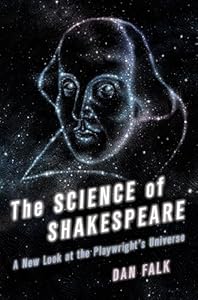 Maybe. Toronto science journalist Dan Falk, author of the forthcoming The Science of Shakespeare, argues that playwright William Shakespeare (1564–1616) may have had a more “modern” concept of science than we suppose:
Maybe. Toronto science journalist Dan Falk, author of the forthcoming The Science of Shakespeare, argues that playwright William Shakespeare (1564–1616) may have had a more “modern” concept of science than we suppose:
Shakespeare could have seen evidence of the “new astronomy” with his own eyes. In November of 1572, a bright new star appeared in the constellation of Cassiopeia. (We now know it was a supernova, the explosive death of a massive star.) Shakespeare was only eight at the time – but we know Digges made observations of it, as did astronomer Tycho Brahe in Denmark. Today we call it “Tycho’s star”.
Donald Olson of Texas State University has argued that the star observed by Prince Hamlet shining “westward from the pole” was inspired by Shakespeare’s boyhood memory of Tycho’s star – reinforced, perhaps, by a reference to it in Holinshed’s Chronicles 15 years later. (At the very least, Shakespeare would have seen the next supernova, “Kepler’s star”, in 1604.) One might note that Brahe observed the stars from the Danish island of Hven, a stone’s throw from the castle of Elsinore, Shakespeare’s setting for Hamlet.
Falk admits that some of the ideas he outlines are a bit “far-fetched” but
– yet even sceptics do a double-take when they look at Brahe’s coat of arms, noticing that two of Brahe’s relatives were named “Rosencrans” and “Guildensteren”.
It’s fun anyway, and a good incentive to see the plays again.
Follow UD News at Twitter!